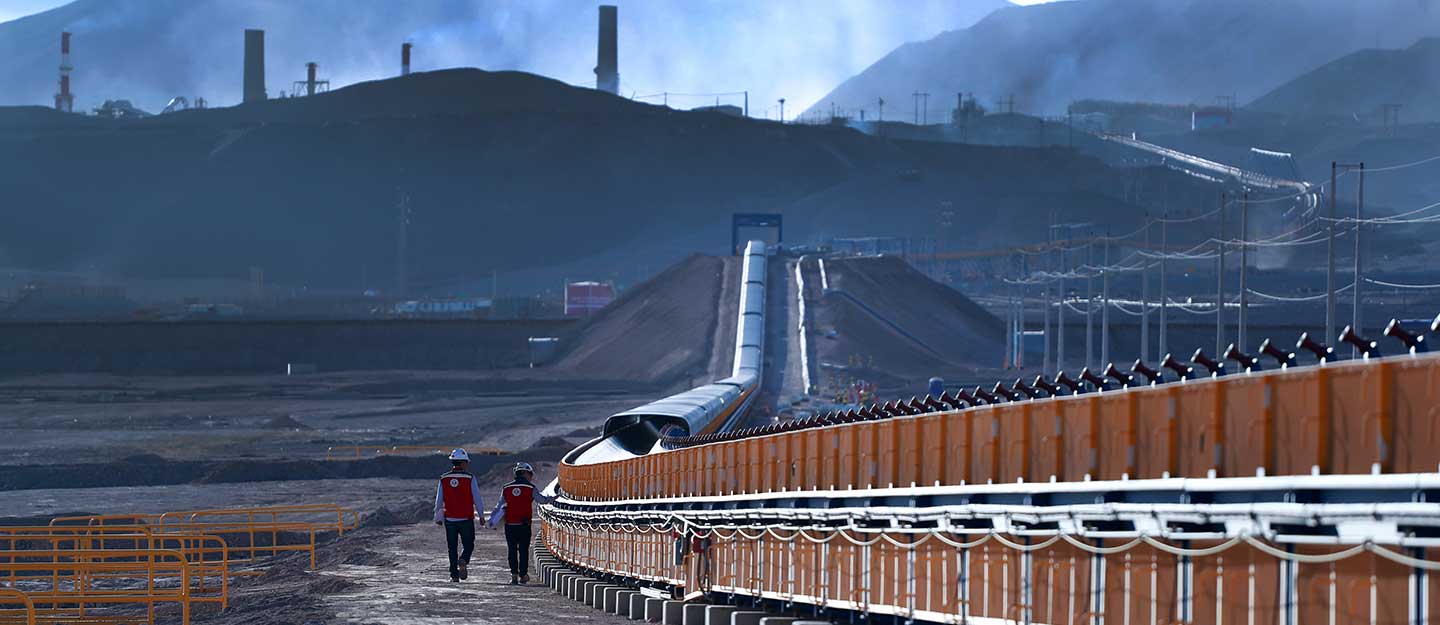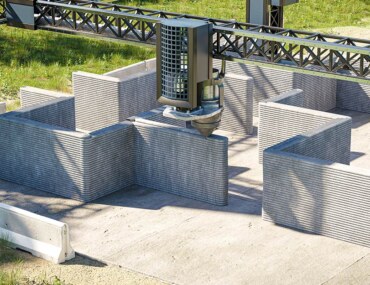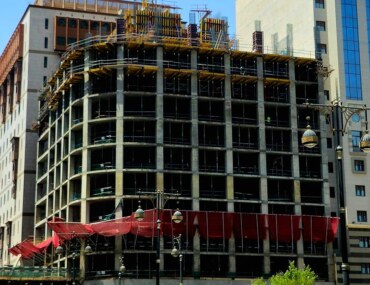With Vision 2030 fueling urban growth, Geotechnical Engineering in Saudi Arabia has become one of the most important pillars of construction and real estate development.
By studying soil, rocks, and underground conditions, geotechnical engineers ensure that buildings, roads, and mega-projects like NEOM and The Line stand on safe and sustainable foundations.
What is Geotechnical Engineering?
Geotechnical engineering is a branch of civil engineering that investigates soil and rock properties to guide construction. In the context of Geotechnical Engineering in Saudi Arabia, it ensures that every development (from housing projects to commercial towers) is built on reliable ground, reducing risks and long-term costs.
Geotechnical engineering includes
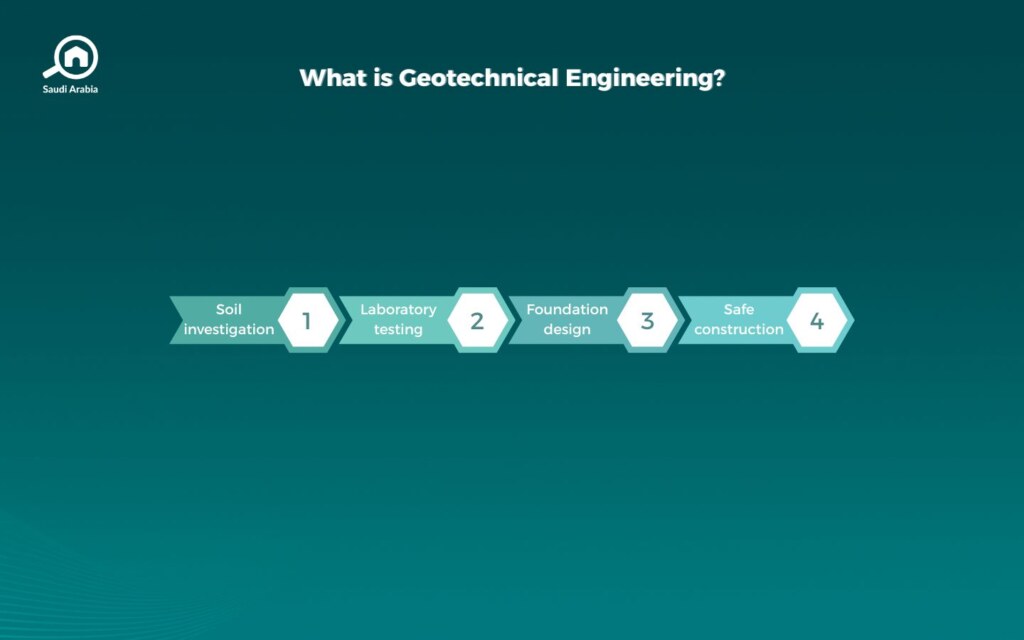
- Soil mechanics to understand how soil reacts under loads
- Rock mechanics for stability analysis
- Foundation design, retaining walls, and slope evaluation
- Field investigations and lab testing of samples
- Use of specialized software like Plaxis and GeoStudio
- Compliance with the Saudi Building Code
In Saudi Arabia, universities such as King Fahd University of Petroleum & Minerals are developing specialized programs to meet the growing demand for geotechnical engineers. You may also be interested in our article Real Estate Technology Is Revolutionizing the Future of Construction.
The Importance of Geotechnical Engineering in Saudi Arabia
The importance of geotechnical engineering in Saudi Arabia is reflected in several critical aspects:
- Selecting appropriate foundation types based on soil characteristics
- Reducing the risk of settlement, landslides, or structural failures
- Ensuring safety in large infrastructure projects like bridges, tunnels, and dams
- Field and laboratory tests (SPT, permeability, shear tests) to guarantee accuracy
- Compliance with Saudi Building Code
BProper geotechnical investigations also save costs, as early identification of ground issues avoids expensive future repairs.
Importance of Geotechnical Studies
Conducting geotechnical studies is a mandatory step for most construction projects. These studies typically involve:
- Site investigation: Initial inspection of terrain and soil conditions
- Soil and rock sampling: Gathering underground data through drilling
- Laboratory analysis: Testing for soil strength, density, and groundwater levels
- Geotechnical reporting: Providing engineers with the foundation recommendations
The importance of geotechnical studies is clear: without them, developers risk unstable structures and higher long-term costs.
Career Fields for Geotechnical Engineers in Saudi Arabia
The demand for professionals is rising, especially with Vision 2030 projects. Career fields for geotechnical engineers in Saudi Arabia include:
- Site Investigation Engineer: Conducting fieldwork and soil analysis
- Laboratory Specialist: Testing soil, rock, and water samples
- Geotechnical Consultant: Advising developers and real estate companies
- Foundation Design Engineer: Designing safe and efficient building foundations
- Project Manager: Overseeing large-scale infrastructure developments
Reports indicate that demand for geotechnical engineers could grow by up to 35% over the next five years, creating exciting opportunities for new graduates and experienced professionals.
Read also: How Robots in NEOM Projects Are Building the City of the Future
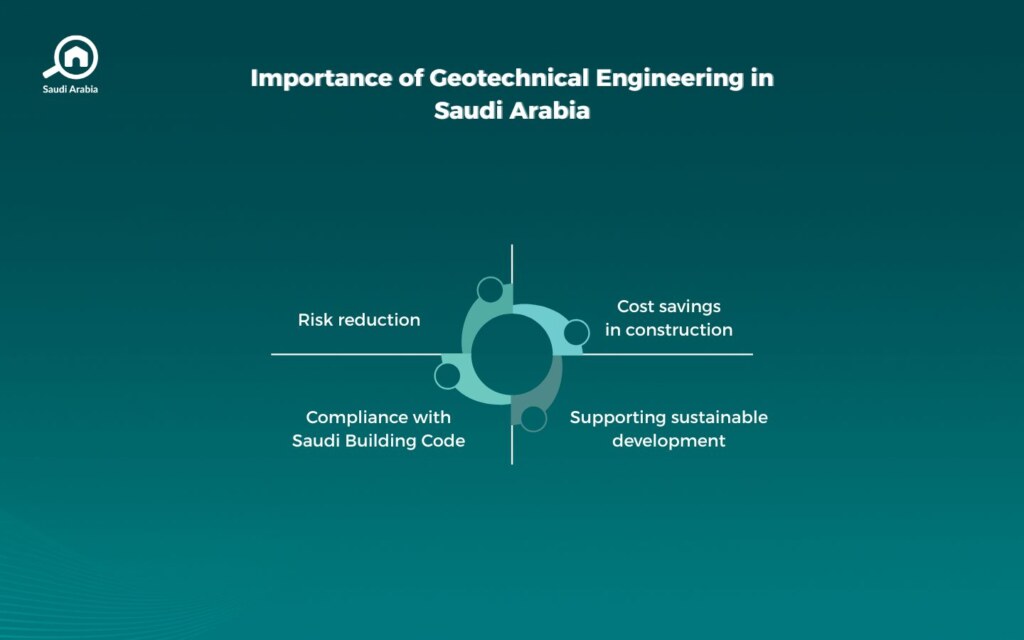
Geotechnical Engineering in Saudi Arabia: Mega-Projects, Future Trends, and Urban Development
Looking ahead, the demand for geotechnical expertise is expected to grow as Saudi Arabia continues its urban expansion. Emerging technologies such as digital twins and advanced soil improvement methods are transforming the field, enabling smarter infrastructure and more resilient cities. Conferences like the International Geotechnical Innovation Conference (IGIC) promote research and innovation, keeping professionals at the forefront of global best practices.
Ultimately, geotechnical engineering in Saudi Arabia forms the backbone of urban development. It ensures the safety, durability, and sustainability of residential, commercial, and mega infrastructure projects, while providing growing career opportunities for engineers, consultants, and researchers contributing to the Kingdom’s Vision 2030 transformation.
Still want to dive deeper into real estate insights, uncover the latest market trends, and discover more? Follow our blog, My Bayut, for all the updates!
